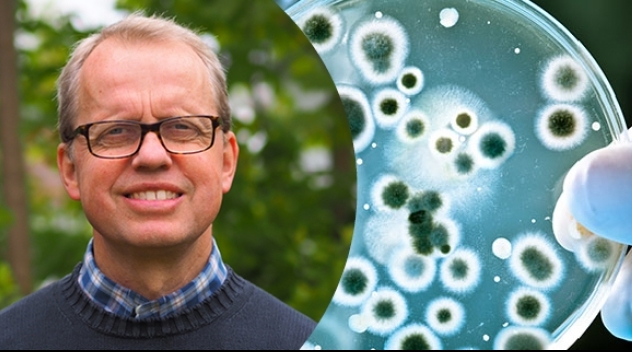SEK 25 million to ENABLE-2 and continued development of new antibiotics
ENABLE, the EU initiative for antibiotic development led by Uppsala University, has received SEK 25 million from the Swedish Research Council to start up ENABLE-2. "We are already accepting project proposals and hope that this investment will inspire more financiers," says coordinator Anders Karlén.
The Swedish Research Council allocated SEK 25 million to ENABLE-2, a national extension of the EU project ENABLE – European Gram-Negative Antibacterial Engine, that will be coordinated via Uppsala University's Faculty of Pharmacy. The grant is part of the SEK 100 million that the Swedish government is investing in the national research program on antibiotic resistance. The initiative has been warmly welcomed by Anders Karlén, coordinator of ENABLE-2 and Professor of Computer-aided drug design at Uppsala University:
“The development of new antibiotics is a central part of the efforts to address the problems arising from resistant bacteria. To succeed we need sufficient resources to provide support during the early stages of antibacterial drug development. With ENABLE, we have built a successful foundation, and the Swedish Research Council's continued trust in our work gives us the conditions we need to continue developing what we have begun,” says Anders Karlén.
ENABLE-2 is already accepting applications from researchers with molecules that can be candidates for antibacterial drugs. This call is initially aimed at Swedish academia and biotech industry and the initial application period will remain open until 31 October. The platform has funding through 2022, but ambitions are to operate in a longer perspective and to develop collaborations with funders and research environments in other European countries.
“We have chosen to prioritise the early stages of discovery and development of antibiotics, a phase where we have identified a great need for project support along the way towards new antibacterial drugs. This applies in particular to support for antibacterial agents for systemic use against specially problematic pathogens, with the aim to advance the best of these Hit compounds to a level where they can be successfully taken up by other global initiatives or out-licensed,” says Anders Karlén.
ENABLE was initiated in collaboration between the EU and the European pharmaceutical industry with the aim of taking a drug candidate all the way to human testing. The project wrapped up in October 2021, and during its 7.5 years, several potential antibiotic molecules have been developed with one candidate drug undergoing a phase I study with positive results. Uppsala University's Faculties of Pharmacy and Medicine have contributed expertise in, among other things, medicinal chemistry, microbiology, ADME and project coordination, all valuable contributions that have helped in consolidating Uppsala's already advanced position in the field of antibiotics.
“Since November 2019, Uppsala University also has a leading role in COMBINE, one of eight projects in the IMI AMR Accelerator where the EU and the pharmaceutical industry are working with a common goal to within six years produce ten new preclinical drug candidates, of which five will be able to achieve phase 2 studies. Our work in ENABLE has contributed to us today being able to mobilise all the experience and competence needed to take part in collaborations of this scope, and we are now seeing the evidence of the great reputation Uppsala University has built up in the field of antibiotics,” says Anders Karlén who also coordinates COMBINE.
Magnus Alsne
Facts ENABLE-2
- Is a national platform that offers project support for the development of antibacterial drugs.
- Is funded with SEK 25 million by the Swedish Research Council and coordinated at the Faculty of Pharmacy, Uppsala University.
- Is accepting applications until 31 October 2021.

